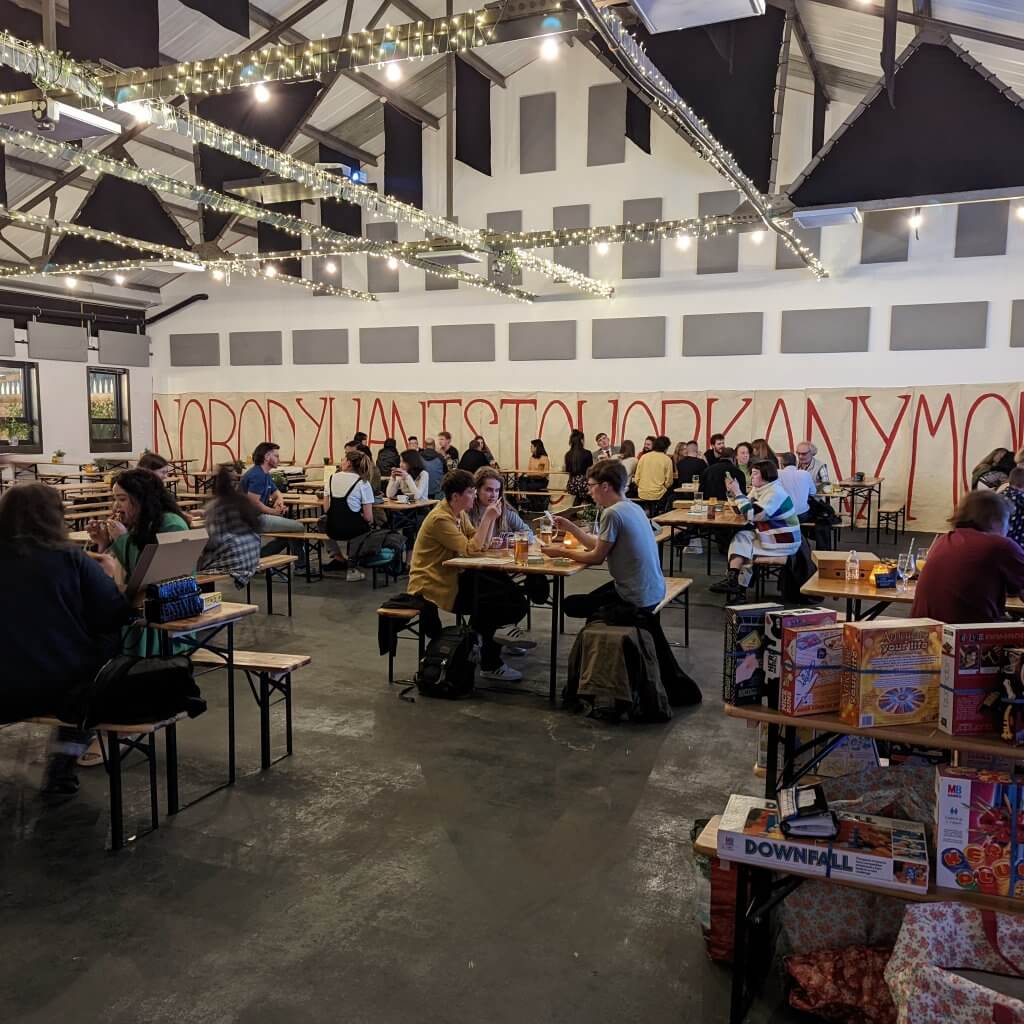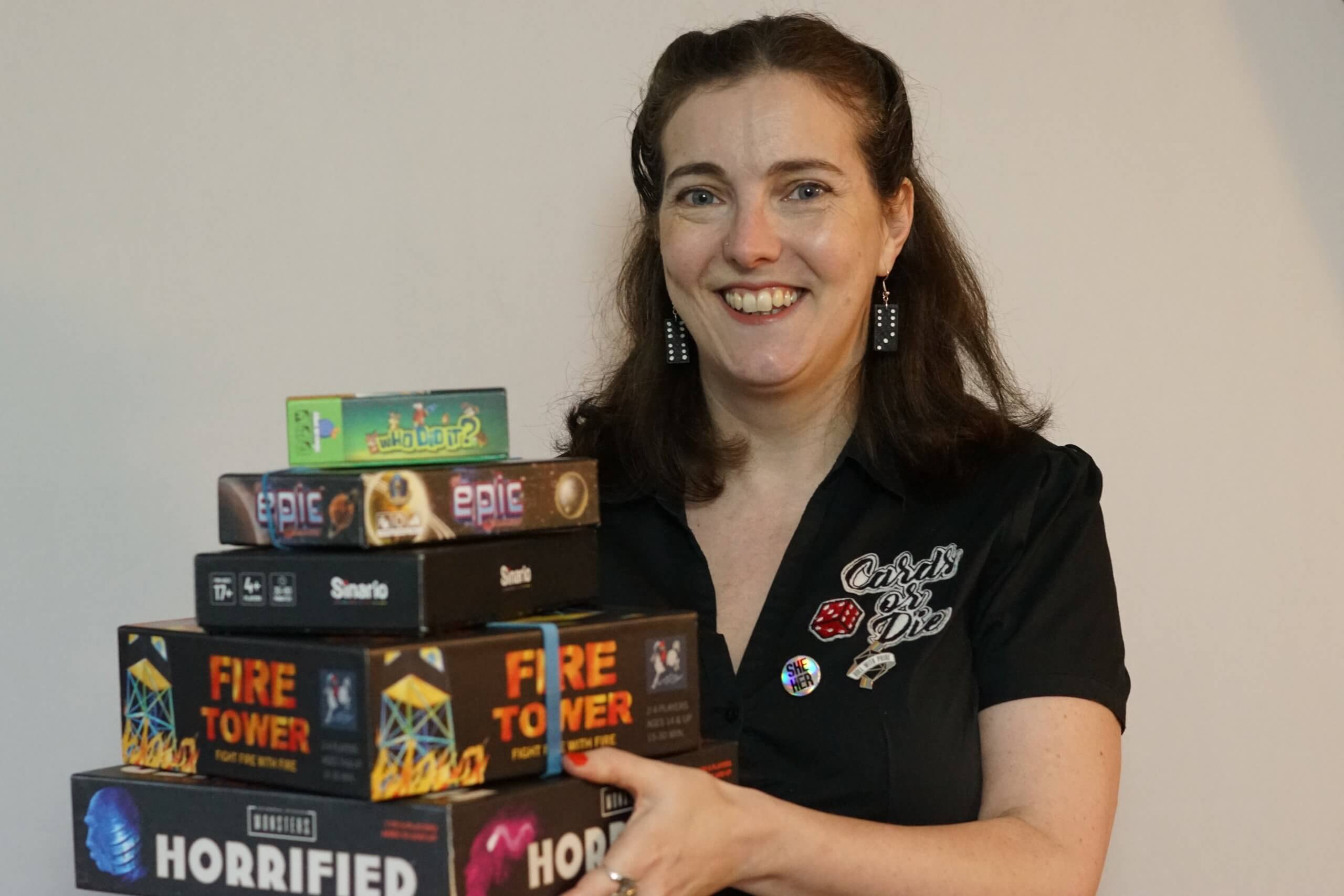How to create a welcoming and inclusive experience at your boardgames table.

We all love games for different and overlapping reasons – some of us love the escapism gaming offers, maybe it’s the intellectual challenge that appeals or the social aspect – feeling part of a group doing a fun activity together. Whatever your motivation, when you come to a games event – whether that’s one of my public events or you’ve decided to go to a convention – and see a game you’d like to join in one of the many open gaming spaces or at a demo table you want to feel welcome and included. It’s easy to create a welcome space at your table but it can also be easy to forget ourselves and make others feel left out. I want to be sure that people who are new to board games feel welcome– luckily there are loads of easy ways to welcome new people to the table and share our love for games.
Don’t yuck someone else’s yum!
This is the easiest one to forget – we’ve all done it. We all adore some games and loathe others. We are surrounded by social media that tells us what we should and shouldn’t like, lists of what people hate. One of the latest trends is ‘reasons I hate this thing…’ then it ‘cleverly’ pivots and tells us why we should buy the thing. It feels like negativity itself is a trend. Explaining to someone why you hate a game that they love comes across as dismissive and rude. It discourages them from sharing their experiences, especially when the reason their favourite game is rubbish is because it is somehow inferior to ‘proper games’ ‘heavier games’ or any of those other phrases which imply that a lack of experience as a ‘proper board gamer’ has led to their woeful misjudgement. Of course, not all games are for everyone. But there’s ways of saying ‘that’s not for me’ without making someone feel bad.
Teaching Games
At demo stands at conventions it is always clear who is teaching the game but when it comes to other games spaces this can become a bit trickier. Unless you are all learning a new game and have agreed beforehand to ‘muddle through’ then you must nominate one teacher. They will be the teacher for the whole game. For people new to gaming, new to this game, or new to teaching a game this is vital. There is nothing more confusing or undermining than teaching a game while three other people chip in, argue with you or explain it in a slightly different way! If you think the teacher has got a rule wrong, by all means ask them to clarify, but don’t get into a prolonged rule debate while the learning player glazes over and looks wistfully towards a group who are already on the second round of something that looks fun!
If you’re the one teaching, bear in mind that people have different learning styles. Most people will struggle to take in a lot of theory and will prefer to be actively learning. Make sure everyone knows the object of the game and then try to get playing and ‘doing’ as soon as possible. Maybe you could just teach the first round or maybe there are actions which you won’t take until later in the game – save teaching these actions until the stage in the game when they might want to do that action. Maybe there’s a layer of complexity that you could play the first round without. Give people thinking time, don’t expect them to move as fast as an experienced player. Some people want to be given strategy suggestions while others would rather take time, make mistakes, and work it out for themselves. Just ask what their preference is and then respect that! Trying to process learning a new game while someone gives you 45 different strategy suggestions can be incredibly overwhelming.
If at all possible, allow people to undo their move if they realise it was wrong. Your aim should be to teach the game and help that person understand the game. Winning is less important than having people who want to play with you again.
If you aren’t teaching, as hard as it may be, try not to chip in. Establish at the beginning that if the person teaching wants input, they will ask. If someone asks a question it is directed at the teacher not the group. If you think the teacher hasn’t noticed that people are confused or doing something wrong – ask them to go back over it. If it needs rephrasing they will do it. If it seems the teacher has missed a key point, ask yourself if the players need to know that now or could it wait? If it can wait, the teacher may well be saving that information until the right time so as not to confuse people.
Be friendly. Be kind.
One easy way of doing this is to respect people’s pronouns. Increasingly people have their pronouns on their lanyard at conventions, if you don’t feel comfortable asking people’s pronouns go for ‘they’ as it’s neutral. I am giving this advice knowing that I am working on this too. It’s something we should work on as it can make a real difference to how comfortable people feel at the table. Learning names is a good way of making people feel included. Remembering names is tricky for a lot of people -one thing I do is firstly, – I repeat it back to the person (this also helps make sure I’m pronouncing it correctly) then I use their name a lot for the first few rounds to try to get it in my head. I also acknowledge that everyone forgets so it’s ok to check if you do forget.
All of this is even more important if you are part of a majority group -if the table is majority white or majority male for instance. Imagine joining a group that you are a minority in, add to that inexperience. When we’re new. we worry about looking stupid or not being welcome in the hobby. It is the role of the majority to make sure minorities are included and looked out for.
What are your top tips for creating an inclusive space at your table?
